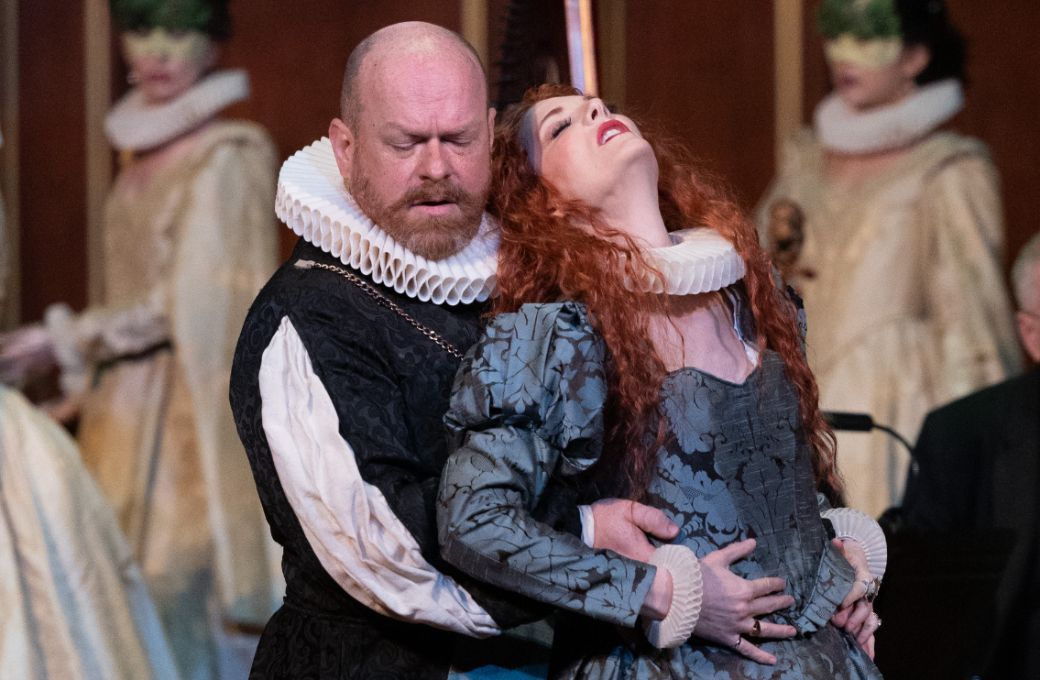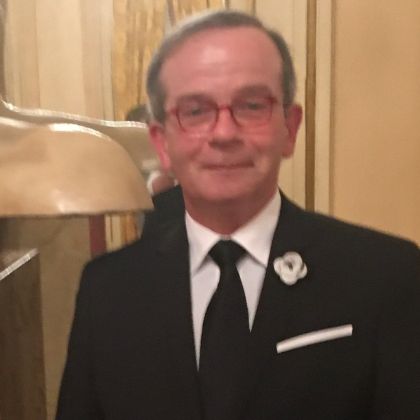La liberazione di Ruggiero dall’ isola d’ Alcina marks many firsts in the history of opera: the first extant opera written by a woman; the first of dozens of operas derived from Ariosto’s Orlando furioso; the first Italian opera performed abroad. The latter is disputed by some, but it was definitely the first Italian opera performed in Poland, thanks mostly to the reason for its Florence premiere: a visit to the Medici court by Archduke Karl of Styria and his nephew, Crown Prince Wladislaw of Poland. Archduke Karl was the brother of Grand Duchess Maria Magdalena, co-regent, with her mother-in-law, of Florence. Francesca Caccini (1587-1641), daughter of the prickly, volatile Giuliano who contributed greatly to the development of opera, was an accomplished composer, pedagogue, singer and instrumentalist in her own right and thrived in a court which prized and privileged women. She became its highest paid musician and likely created the role of Alcina herself.

The Boston Early Music Festival chose to simplify the opera’s title (as well as its presentation) when it first produced the opera in 2018. Spectacle was a hallmark of the Medici court. Though neither the music nor the choreography was included in the score, published thanks to the Grand Duchesses’ patronage, Alcina ended in an equestrian ballet involving 24 horsemen. Concertmaster Robert Mealy’s edition substitutes ballo music by Emilio de’ Cavalieri (1550-1602) set to a text praising the probity of Tuscan women by Laura Guidiccioni (1550-1597). It is one of the few dances for which the choreography has survived.
Court costumes, conceived for easy additions and subtractions, allowed the chorus to fluidly transform itself from the water deities of the Prologue into Alcina’s courtiers, the spurned lovers transformed into plants (with leafy appendages and masks), and the monsters summoned by the sorceress’s thirst for revenge. Gilbert Blin’s staging unfolded in front of and around the complement of 12 instrumentalists (strings, recorders, harpsichord, harp and continuo organ) making effective maximal use of the minimal space available.
Mireille Lebel and Cecilia Duarte as the two women contending for Ruggiero could not have been more strongly cast. Lebel’s supple, gleaming voice tracked Alcina’s metamorphosis from the alluring, flaming redhead at the height of her beauty and powers to a beleaguered, monstrous sorceress abetted by an impressive fright wig and manic fire in her eyes. The vocal and dramatic arc of her extended lament managed to create both sympathy and repulsion as her efforts to reclaim Ruggiero curdled into vows of vengeance. Duarte’s mezzo has the richness and depth of a contralto which made her an imposing Melissa and her disguise as Ruggiero’s tutor, Atlante, completely convincing. She also performed the stylized movements assigned to all the characters without ever betraying the fact that she was wearing a mostly well-camouflaged orthopedic boot on her left foot.
Colin Balzer returned as Ruggiero for this revival, but this time battling some impediment which affected sustaining breath and volume and caused his voice to fall uncharacteristically out of focus. Still, he convincingly portrayed the Saracen knight’s enchanted languor, torment and resolve. Teresa Wakim’s Sirena would have been hard for any listener to resist and Brian Giebler’s Pastore sang his love idyll with Arcadian simplicity and innocence. The chorus, which has some of the opera’s best music, was outstanding both vocally and histrionically.
Mealy, along with musical directors Paul O'Dette and Stephen Stubbs, put together an edition which, instrumentally, strives to stay close to what the Medici court might have deployed and works best, dramatically, of the several I’ve heard. More performances take place later this month in the Berkshires and at Caramoor. Go, if you can. You won’t be disappointed.


